Japanese Students Study Indonesian Culture
Japanese Students Study Indonesian Culture
Monday, March 17, 2014
Indonesian and Japanese Students from the member universities of SUIJI (Six Universities Initiative Japan Indonesia) are taking part in the Service Learning Program (SLP) in the campus of Bogor Agricultural University (IPB), February – March 2014. The six universities are Bogor Agricultural University (IPB), University of Gajah Mada (UGM) and the University of Hasanuddin (UNHAS), Ehime University, Kochi University and Kagawa University.
Vice Head of Community Service Division, Institute for Research and Community Service, Bogor Agricultural University (LPPM-IPB), Dr. Hartoyo said, the cooperation involved in the SUIJI consortium is a continuation of the activity in Japan of last September in 2013.
"In September 2013, Indonesian students were invited to Japan, involving 50 students from three Indonesian universities. They learned and interacted directly with the people of Japan on many things such as listening to people, looking at what Japanese people do, how Japanese show empathies, and studying directly the living conditions of Japanese people," said Dr. Hartoyo. For the activities in Indonesia, 21 participating Japanese students were taken to the villages in Bogor such as the Villages of Situ Gede, Cikarawang, Tegal Karang Mulya, Sumiarsih and Tuwel.
The activities were focused on the rural environmental aspects. The students observed patterns of village life in Indonesia. Early in the morning, they looked at the habit of women washing in the river, the Japanese students enthusiastically helped, walking down to the river to wash clothes. These students felt weird – why do Indonesian people wash clothes in the river? They were also surprised to see people throwing garbage into the river. "Why don’t they not throw into the trash?" They asked with a surprise.
Following these observations, they tried to provide counseling. They gathered people at a house in the Neighborhood (RT) or at the office of the local village. Concerning this, Dr. Hartayo said, "Indonesian people are generally eager to come the counseling when it is given by people from foreign countries. And they are also more open to suggestions."
The Japanese students stayed in the homes of local people to be more exposed directly to the activities of local residents. They also involved in everyday activities such as washing, cooking, cleaning the yard and so on." The cooperation of SUIJI consortium will continue to run. It will be enhanced and developed further. This activity aims to provide benefits to the people of Indonesia. Next year, it is expected to be more optimal," said Dr. Hartoyo. (Mtd)


